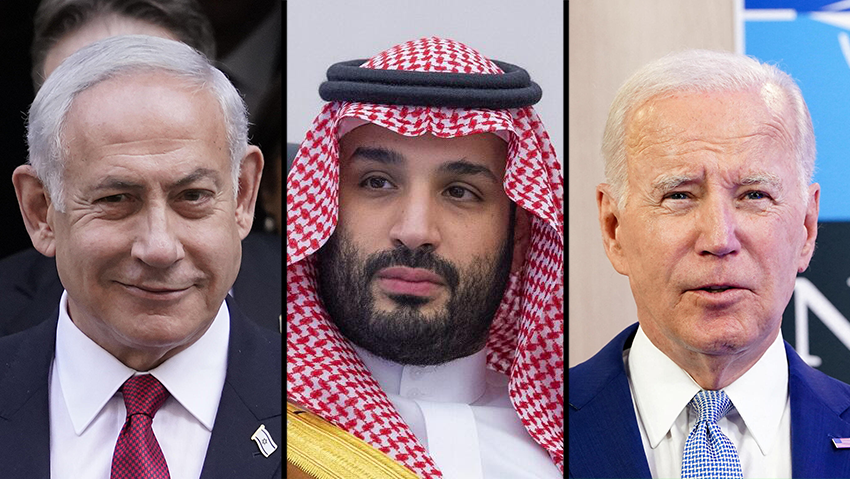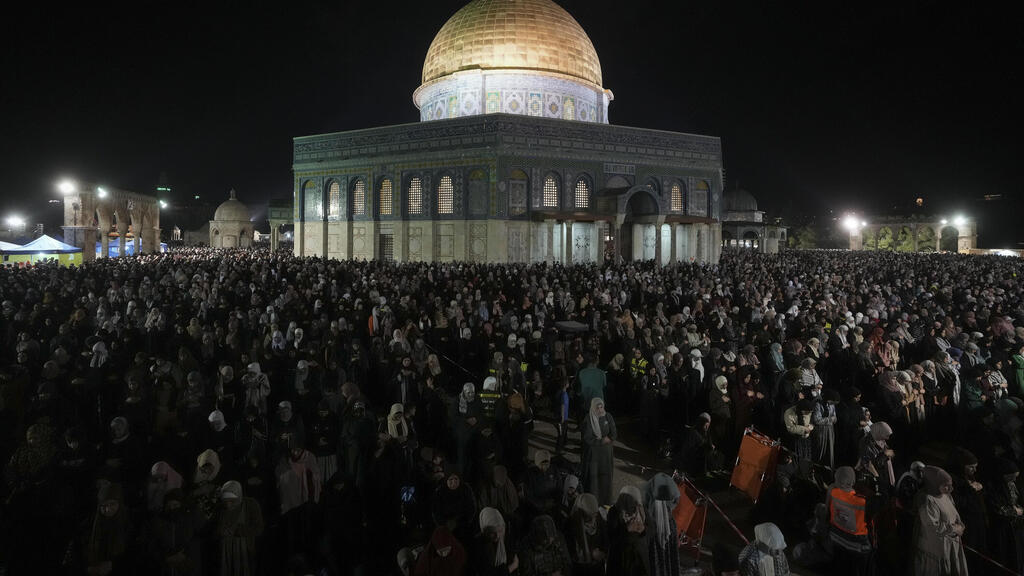Getting your Trinity Audio player ready...
U.S. and Saudi Arabia have agreed on the broad contours of a deal for Saudi Arabia to recognize Israel in exchange for concessions to the Palestinians, U.S. security guarantees and help in advancing a civilian nuclear program. the Wall Street Journal reported on Wednesday. Quoting U.S. officials, the paper said there was cautious optimism that an agreement could be finalized within nine months to a year. “There’s a work plan to explore the elements of what this would be and test the boundaries of what’s possible,” a senior official told the paper.
More stories:
U.S. President Joe Biden has reportedly has yet to decide what price he is willing to pay, the WJS said, adding that he believes that "America has to remain a central player in the Middle East to contain Iran, isolate Russia for its war in Ukraine, and thwart efforts by China to supplant Washington’s interests in the region."
2 View gallery


Benjamin Netanyahu, Mohammed bin Salman, Joe Biden
(Photo: Kevin Lamarque / AP, Reuters)
According to the report, progress in the talks came after Saudi Crown Prince Mohammad Bin Salman met U.S. National Security Advisor Jake Sullivan in Jeddah last month. The Crown prince told close aides that he was not ready to establish full diplomatic relations with Israel like those established by the UAE, Bahrain and Morocco in the 2020 Abraham Accords and was in no rush, especially with the current "hardline" Israeli coalition in power.
U.S. and Saudi officials have said that Israel will have to make a significant offer that advances efforts to create an independent Palestinian state. "The issue remains one of the least developed points in talks, according to people briefed on the discussions," the WSJ reported.
Prime Minister Benjamin Netanyahu claimed in an interview on Sunday, that the Israeli-Palestinian conflict comes up less than is perceived, in negotiations, calling it “sort of a check box."
But Saudi Arabia is looking to "secure a meaningful concession from Israel to fend off criticism from rivals in Iran and Turkey looking to accuse the kingdom of quashing Palestinian dreams of an independent state," the WSJ said in its report.
2 View gallery


Palestinians worship at the Al Aqsa mosque compound, Temple Mount in Jerusalem during the holy month of Ramadan
(Photo: AP)
The paper quoted Israeli officials who expressed concerns that agreeing to a civilian nuclear program in Saudi Arabia could be a dangerous acceleration of the nuclear arms race in the region. The Crown Prince has already said he would develop a nuclear capability if Iran possessed one first.
“At the moment, we don’t even know where to begin,” National Security Advisor Tzachi Hanegbi told the paper. “They are still dealing with basic issues between them. So apparently it’s premature even for them to discuss it.” He said he had “full confidence” that “whatever the United States will decide,” would address Israeli concerns.

